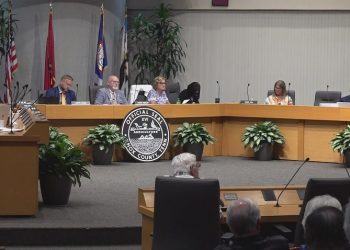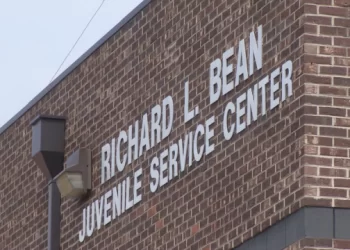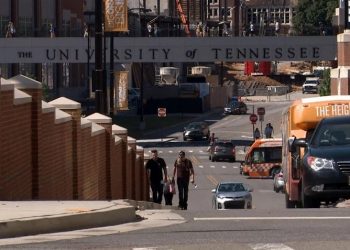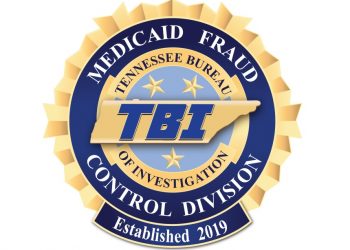Maryville, Tenn. – Tensions flared during a House Criminal Justice Subcommittee hearing on Wednesday at the Tennessee Capitol when a confrontation erupted between two lawmakers, Rep. Justin Pearson (D-Memphis) and Rep. Andrew Farmer (R-Sevierville). The exchange, which led to the disruption of the hearing, revolved around a personal issue that Pearson felt was being unfairly dragged into the political arena.
The incident began when Rep. Pearson was called to the stand to testify on HB1392, a bill aimed at amending Tennessee’s permitless carry law. During the hearing, Rep. Farmer appeared to question Pearson about his recent absence from the legislature. In response, Pearson disclosed that he had been dealing with the aftermath of his brother’s tragic death by suicide, which had led to his absence from the House.
The situation escalated when Pearson, visibly upset, raised his voice in response to Farmer’s comments. In a dramatic turn, Pearson’s microphone was cut off as he shouted at Farmer, prompting Rep. Clay Doggett (R-Pulaski) to intervene. Doggett attempted to restore order, urging the lawmakers to maintain civility in the midst of the heated exchange. However, Pearson continued to express his frustration, and the situation grew more tense.
As the subcommittee members moved toward a vote, the atmosphere in the room remained charged. Following the vote, a recess was called, but Pearson did not immediately leave. Instead, he approached Rep. Farmer, confronting him directly and pointing his finger in Farmer’s face. The confrontation was only broken up when other lawmakers stepped in to separate the two.
The aftermath of the altercation saw Pearson speaking out publicly about the incident. In a statement posted to social media, Pearson condemned Farmer’s questioning of his absence, describing it as an unacceptable intrusion into his personal grief.
“Out of all the things imaginable, I never thought I would have to defend grieving my brother in a General Assembly subcommittee. It’s sad how low some people are willing to go for a sound bite,” Pearson wrote. He continued by emphasizing the importance of respecting personal loss, saying, “Farmer, I would never treat another person the way you treated me. No matter how personal it gets on the floor, family and loved ones, especially those who have passed away, are off limits.”
The exchange highlights the often fraught and emotional nature of political debates, especially when personal tragedies are brought into the public eye. Pearson’s emotional response underscores the deep pain he is experiencing following his brother’s death, and his words serve as a reminder of the human side of politics.
Rep. Farmer, for his part, briefly responded to Pearson during the hearing but did not issue an immediate public statement following the confrontation. It remains unclear whether the incident will have any lasting impact on the ongoing legislative work related to the permitless carry law.
As the dust settles, the confrontation has sparked broader conversations about the tone of political discourse and the boundaries between personal and political matters in legislative settings. In the wake of the incident, some lawmakers, including Rep. Doggett, expressed empathy for Pearson’s situation, acknowledging that grief and personal loss should be treated with respect, even in the heat of political debates.













